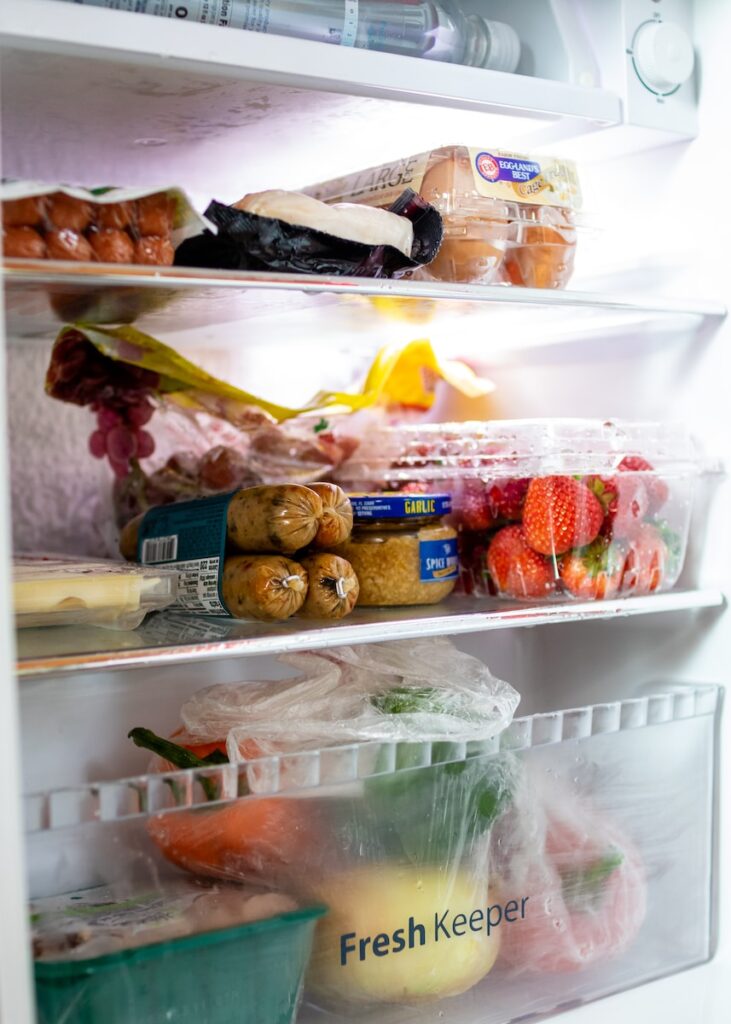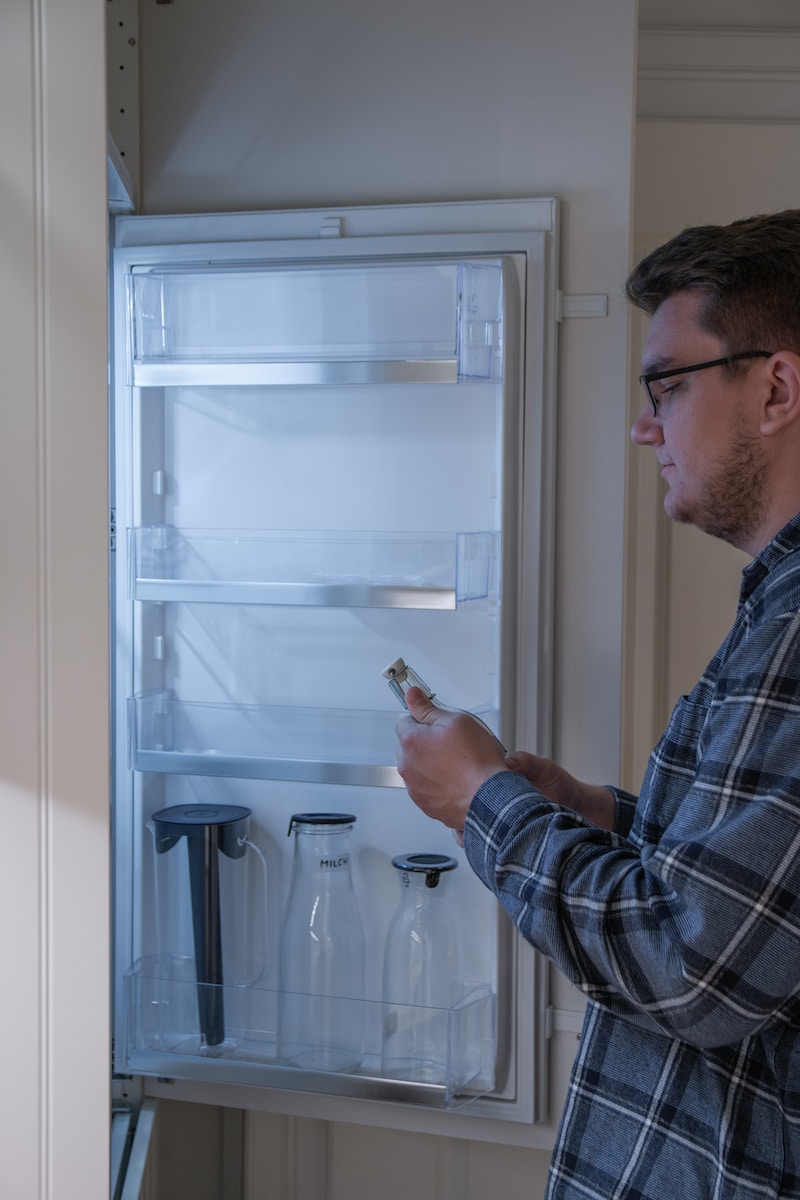If you’re a new RV owner and find yourself facing issues with your refrigerator on the road, don’t worry – you’re not alone! Troubleshooting problems with your RV refrigerator might seem daunting at first, but with a little guidance, you’ll be able to tackle those issues like a pro. In this article, we’ll provide you with some helpful tips and tricks to ensure that your RV refrigerator is running smoothly, so you can enjoy your adventures without any refrigeration worries. So, let’s dive right in and get your RV fridge back on track!
Common RV Refrigerator Problems
Owning an RV comes with its fair share of challenges, and one of the most frustrating issues you may encounter is problems with your RV refrigerator. A malfunctioning fridge can quickly ruin your trip and leave you with spoiled food and a lot of frustration. But fear not! In this article, we will explore the most common RV refrigerator problems and provide you with step-by-step troubleshooting tips to help you get your fridge up and running again.
Fridge Not Cooling
One of the most common problems RV owners face with their refrigerators is when it fails to cool properly. This can be a major inconvenience, especially when you’re relying on the fridge to keep your food fresh during your travels. Fortunately, there are a few simple steps you can take to troubleshoot this issue.
Step 1: Check Power Supply
The first thing you should do is check the power supply to your RV refrigerator. Make sure it is properly connected and receiving power. Check the circuit breaker or fuse to ensure that there is no issue with the electrical connection.
Step 2: Inspect Ventilation
Proper ventilation is crucial for the efficient operation of your RV refrigerator. Check for any obstructions or blockages in the ventilation system. Clear away any debris or dust that may be hindering the flow of air.
Step 3: Clean Coils
Dirty coils can prevent your fridge from cooling properly. Remove any dust or grime that has accumulated on the coils at the back of the refrigerator. Use a soft brush or vacuum cleaner to gently clean the coils.
Step 4: Check Door Seal
A faulty door seal can lead to cold air leaking out of the refrigerator. Inspect the seal for any damage or gaps and replace if necessary. A tight and secure door seal is essential for the proper functioning of your fridge.
Step 5: Test Thermistor
The thermistor is a temperature sensor that regulates the cooling cycle of your refrigerator. If it is faulty or not calibrated correctly, it can cause the fridge to not cool properly. Use a multimeter to test the resistance of the thermistor and replace it if needed.
Fridge Not Working on Electric/Gas
Another common issue that RV owners face with their refrigerators is when they fail to work on either electric or gas power. This can be a frustrating problem, especially when you’re camping in a location where you don’t have access to electricity. Here’s how you can troubleshoot this issue.
Step 1: Check Power Source
If your RV refrigerator is not working on electric power, make sure that your RV is connected to a reliable power source. Check the circuit breaker or fuse to ensure there is no issue with the electrical connection. If you are using a generator, make sure it is functioning properly.
Step 2: Inspect Gas Supply
If your RV refrigerator is not working on gas power, check the gas supply. Ensure that the gas valve is open and that there are no leaks in the gas lines. Test the gas pressure to ensure it is at the correct level.
Step 3: Test Igniter
If your RV refrigerator runs on gas and the igniter is not working, it will not be able to start the cooling process. Test the igniter with a multimeter to ensure it is functioning properly. If it is not, it may need to be replaced.
Step 4: Clean Burner Assembly
A dirty or clogged burner assembly can prevent your RV refrigerator from working on gas power. Clean the burner assembly and remove any debris or blockages that may be hindering the flow of gas. Ensure that the burner is receiving the correct amount of gas for proper combustion.
Fridge Making Strange Noises
If you’re hearing strange noises coming from your RV refrigerator, it’s important not to ignore them. Unusual sounds can indicate underlying issues that need to be addressed. Here’s how you can troubleshoot this problem.
Step 1: Identify the Noise
The first step in troubleshooting strange noises is to identify the source of the sound. Is it a rattling noise, a buzzing sound, or a hissing sound? Take note of the type of noise and where it is coming from.
Step 2: Check Fans and Motors
Noisy fans or motors can indicate a problem with the cooling system. Inspect the fans and motors for any obstructions or signs of wear and tear. Clean or replace them as necessary.
Step 3: Inspect Compressor
The compressor is responsible for circulating refrigerant and maintaining the temperature inside the refrigerator. If it is making strange noises, it may be failing. Inspect the compressor for any signs of damage or malfunction and replace if necessary.
Step 4: Look for Loose Parts
Loose or misaligned parts can cause vibrations and strange noises in your RV refrigerator. Carefully inspect the interior of the fridge and tighten any loose screws or fasteners. Ensure that all components are properly secured in their place.
Fridge Leaking Water
Finding water inside your RV refrigerator can be a cause for concern. Not only can it damage your food, but it can also indicate a problem with the fridge’s drainage system. Here are the steps to troubleshoot a leaking refrigerator.
Step 1: Check Drain Pan and Tube
The drain pan and tube are responsible for collecting and diverting condensation away from the refrigerator. Inspect the drain pan for any cracks or damage and replace it if needed. Clear any blockages in the drain tube and ensure that it is properly connected.
Step 2: Inspect Water Supply
If your refrigerator has a built-in water dispenser or ice maker, check the water supply line for any leaks or damage. Repair or replace any faulty connections or components.
Step 3: Unclog Drain Line
A clogged drain line can cause water to back up and leak into the refrigerator. Use a small brush or pipe cleaner to clear any blockages in the drain line. Ensure that the drain line is properly installed and positioned to allow for proper drainage.
Fridge Not Defrosting Properly
When your RV refrigerator fails to defrost properly, it can lead to ice buildup and poor cooling performance. Here’s how you can troubleshoot this problem.
Step 1: Inspect Defrost Timer
The defrost timer controls the defrost cycle of your refrigerator. If it is faulty or not functioning correctly, the fridge may not defrost properly. Test the defrost timer and replace it if needed.
Step 2: Test Defrost Heater
The defrost heater is responsible for melting the ice buildup in the fridge. Use a multimeter to test the resistance of the defrost heater. If it is defective, it may need to be replaced.
Step 3: Check Defrost Thermostat
The defrost thermostat monitors the temperature inside the refrigerator and signals the defrost cycle to start. If it is malfunctioning, it can prevent the fridge from defrosting properly. Test the defrost thermostat and replace it if necessary.
Fridge Freezing Food
If your RV refrigerator is freezing your food, it can lead to unnecessary waste and frustration. Here’s how you can troubleshoot this problem.
Step 1: Check Temperature Settings
The first step is to check the temperature settings of your refrigerator. Ensure that the temperature control knob or digital display is set to the appropriate temperature. Adjust it if necessary.
Step 2: Inspect Thermistor
The thermistor monitors the temperature inside the refrigerator and signals the cooling system to turn on or off. If it is not calibrated correctly or is faulty, it can cause the fridge to freeze food. Test the resistance of the thermistor and replace it if required.
Step 3: Check Damper Control
The damper control regulates the flow of cold air from the freezer to the refrigerator compartment. If it is stuck open or malfunctioning, it can cause the fridge to freeze food. Inspect the damper control and repair or replace it as needed.
Step 4: Test Temperature Control Board
The temperature control board is responsible for regulating the cooling process of the refrigerator. If it is malfunctioning, it can cause the fridge to freeze your food. Test the temperature control board and replace it if necessary.
Preventive Maintenance Tips
Now that we’ve covered the most common RV refrigerator problems and their troubleshooting steps, let’s explore some preventive maintenance tips to keep your fridge in good working condition.
Keep Fridge Level
Ensure that your RV refrigerator is level to prevent any issues with cooling and performance. Use a bubble level to check the levelness and adjust the fridge as needed.
Regularly Clean and Defrost
Cleaning and defrosting your RV refrigerator on a regular basis will help maintain its efficiency and performance. Remove any leftover food, clean the interior with a mild detergent, and defrost the freezer compartment as needed.
Prevent Overloading
Avoid overloading your RV refrigerator as it can obstruct the airflow and cause temperature fluctuations. Be mindful of the weight and quantity of items you store in the fridge and freezer.
Use RV Fridge Fan
Consider installing an RV fridge fan to improve air circulation and cooling performance. This can help prevent hot spots and promote even cooling throughout the refrigerator.
Check for Air Leaks
Regularly inspect the door seal of your RV refrigerator for any signs of wear and tear. Replace any damaged seals to prevent cold air from escaping and warm air from entering the fridge.
When to Seek Professional Help
While many RV refrigerator problems can be resolved with a bit of troubleshooting and DIY efforts, there are instances where it’s best to seek professional help.
Persistent Problems
If you’ve followed all the troubleshooting steps and the problem with your RV refrigerator persists, it’s advisable to consult a professional technician. They have the expertise and tools needed to diagnose and repair complex issues.
Gas Leak Detection
If you suspect a gas leak in your RV refrigerator, it’s important to seek professional assistance immediately. Gas leaks can be dangerous and should be addressed by a certified professional.
Electrical Troubleshooting
If you’re not comfortable working with electrical components or if you suspect an electrical issue with your RV refrigerator, it’s best to have it inspected and repaired by a qualified electrician.

Conclusion
Maintaining and troubleshooting your RV refrigerator doesn’t have to be a daunting task. By following the steps outlined in this article, you’ll be equipped with the knowledge and tools to tackle common fridge problems. Remember to perform regular preventive maintenance and seek professional help when necessary. With a properly functioning refrigerator, you can enjoy fresh and delicious food throughout your RV adventures. Happy camping!
Affiliate Disclosure: Some of the links on our website are affiliate links, meaning we may earn a small commission if you make a purchase through these links. This helps support our website and keeps our content free for our readers.





